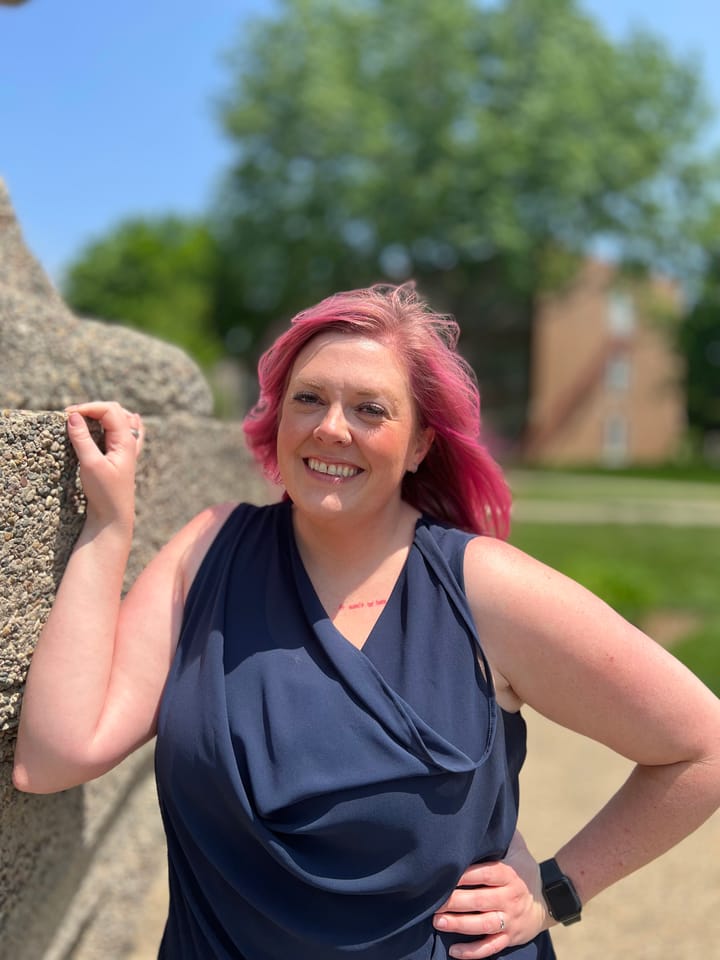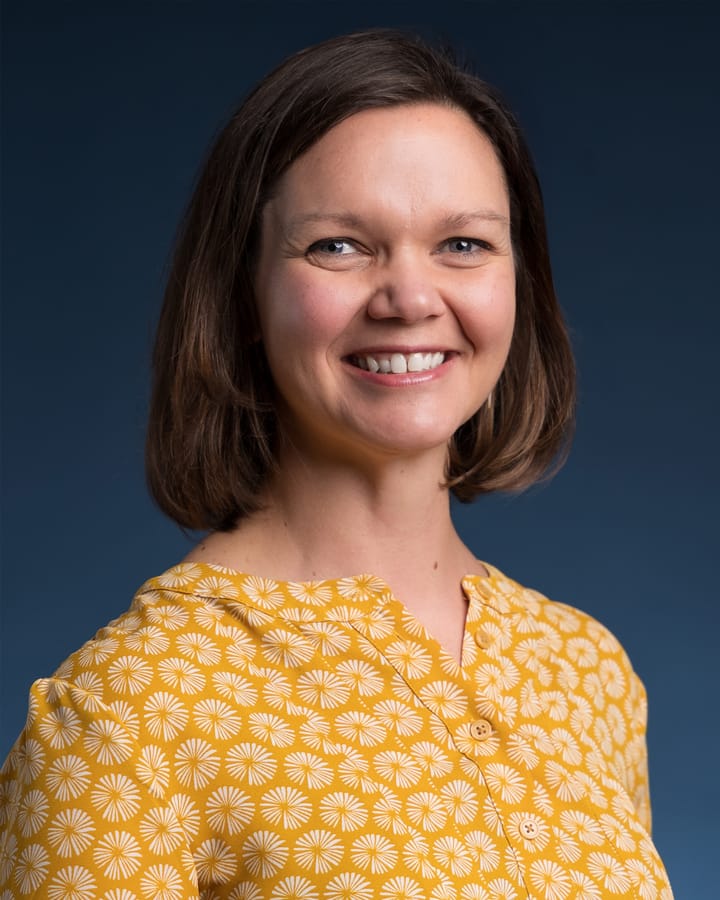Nursing students trade clinicals for online simulations amid pandemic
Junior nursing major Morgan Closman drew her first vial of blood while on her second clinical rotation, the first of the spring semester. She held her first baby as a nursing student on the Avera pediatric floor, and sat in on her first-ever angiogram.
Closman started to feel like a nurse for the first time before the coronavirus pandemic reached Augustana, putting an end to a semester of firsts for her and her fellow nursing students.
Augie nursing students usually walk the halls of Avera and Sanford hospitals for their clinicals. Now that COVID-19 has forced all classes online, the hands-on clinical experience has been replaced by computer simulations.
Lynn White, the nursing department chair and assistant nursing professor, said the clinicals had to be canceled to keep students safe and conserve personal protection equipment (PPE) like masks and gowns for the hospital staff.
The Augustana nursing department, in turn, donated their lab’s supplies to local hospitals, including 7,740 pairs of gloves, 650 surgical masks and 9,600 milliliters of Purell.
According to White, the simulations include a prep assignment on the content of the simulation, a video and a post assignment about what could have impacted the patient’s care. The prep and post assignments are similar to assignments the students completed in their face-to-face clinicals.
The videos are “designed to simulate real-life experiences which place the student in the role of the registered nurse,” White said. “There are questions embedded into the scenarios and how the student answers the questions will affect the outcome of the patient.”
Once the simulations are complete, the students receive a report indicating the correct decisions and the rationale behind them.
The change from clinicals to simulations won’t affect the students’ accreditation.
“Every nursing program in the country and internationally is facing the same issues,” White said. “We have reported the changes in our program delivery to our accrediting agencies.”
Although the simulations are designed to teach nursing students what they’d learn in the hospitals, they can’t completely replicate the in-person clinical experience. Closman said she misses getting to practice hands-on skills and seeing nurses make quick decisions.
Junior Maya Feenstra had her clinicals at the Avera heart hospital and Avera pediatric hospital. She, too, said she misses interacting with patients and learning from the nurses.
“I always appreciated the nurses’ kindness and guidance when I needed it,” Feenstra said. “I would always take away at least one learning moment from clinical every day.”
Despite the simulations’ lack of hands-on training, they provide nursing students with a more uniform experience. All nursing students will go through the same simulations.
“I think they’ll be a lot more structured,” Closman said. “On a real clinical day, I have different patients than someone else would.”
Closman and Feenstra both said the nursing professors have been supportive throughout the transition from the clinical setting to the online simulations.
“The nursing professors are doing a great job by providing us with case studies and questions that we can take with us when we are nurses in the future,” Feenstra said.
The coronavirus has affected more than just nursing students’ clinicals. Feenstra was supposed to have a summer internship on the cardiopulmonary floor at Avera, which has now been designated for COVID-19 patients. Feenstra said her internship was recently relocated to a different floor “to lower the risk of a student getting the virus and to help save some of the PPE.”
Closman works as a patient care tech on that same cardiopulmonary floor. Her job has switched from caring for patients with severe cardiac and respiratory disorders to caring for positive or potentially positive coronavirus patients.
Closman also now takes extra precautionary measures to ensure her safety. She bleaches everything — her pens, badge, phone, watch, bottoms of her shoes — and changes out of her scrubs before coming home. She immediately showers after her shifts for more peace of mind.
Although everything has shifted for nursing students, whether it be at school or at work, Closman said there’s a greater sense of unity.
“It’s made us a lot stronger.”



